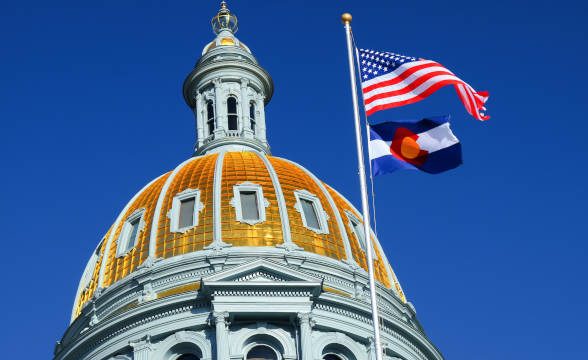Gambling operators in Colorado reported strong results for the fiscal year 2021-22, judging by details released by the Colorado Department of Revenue. But according to a new report, the recent result was positively impacted by raised gambling limits for the state’s three casinos.
Colorado Voters in Favor of Lifting Gambling Restrictions
Back in 1990, voters in Colorado passed a constitutional amendment that restricted the bets for gambling activities such as blackjack, poker and slots to $5 at the state’s gambling venues in Central City, Cripple Creek and Black Hawk. Then, in 2008, those limits were increased to $100 which also saw an increase in the working hours of the gambling venues. The number of gambling activities available expanded as well, resulting in the offering of craps and roulette.
In November 2020, voters in Colorado passed Amendment 77, a proposal that sought to end the bet limits. The proposal enabled Black Hawk, Central City and Cripple Creek cities to vote to raise the bet limits or remove them altogether. What’s more, the proposal expanded the use of gambling tax to further boost community colleges and help with student retention and completion programs.
More People Visit Land-Based Casinos, Operators See Record Wagers
Now, a new report by the Denver Gazette revealed that the passing of Amendment 77 contributed positively to the gaming results for the fiscal year 2021-22. This resulted in record sums wagered by Colorado residents at table games and slot machines. According to Peggi O’Keefe, the executive director of the Colorado Gaming Association, the recent result reaffirms that more people are returning to brick-and-mortar venues. She pointed out that the goal of Amendment 77 was to reduce the number of residents that go to other states to gamble.
“Our goal in passing Amendment 77 was trying to keep customers that were going to other states.”
Peggi O’Keefe, executive director of the Colorado Gaming Association
Only recently, the state introduced new legislation that seeks to crack down on illegal casinos. Under the new rules, the Colorado Division of Gaming will have a wider authority. Ultimately, the new legislation seeks to reduce the black market which in turn will help support local communities and at the same time enhance customer protection.




